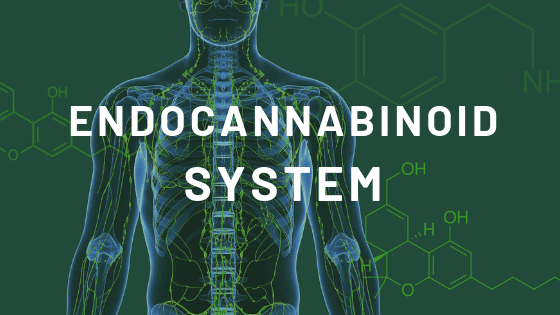What is the Endocannabinoid System?

Image source: Starkel Nutrition
The endocannabinoid system (ECS) is a complex cell-signalling system identified in the early 1990s by researchers exploring THC, a well-known cannabinoid. Cannabinoids are compounds found in cannabis.
How does the ECS work?
The ECS involves three core components: endocannabinoids, receptors, and enzymes.
Endocannabinoids
Endocannabinoids, also called endogenous cannabinoids, are molecules made by your body. They’re similar to cannabinoids, but they’re produced by your body.
Experts have identified two key endocannabinoids so far:
- anandamide (AEA)
- 2-arachidonoylglyerol (2-AG)
These help keep internal functions running smoothly. Your body produces them as needed, making it difficult to know what typical levels are for each.
Endocannabinoid receptors
These receptors are found throughout your body. Endocannabinoids bind to them in order to signal that the ECS needs to take action.
There are two main endocannabinoid receptors:
- CB1 receptors, which are mostly found in the central nervous system
- CB2 receptors, which are mostly found in your peripheral nervous system, especially immune cells
Endocannabinoids can bind to either receptor. The effects that result depend on where the receptor is located and which endocannabinoid it binds to.
For example, endocannabinoids might target CB1 receptors in a spinal nerve to relieve pain. Others might bind to a CB2 receptor in your immune cells to signal that your body’s experiencing inflammation, a common sign of autoimmune disorders.
Enzymes
Enzymes are responsible for breaking down endocannabinoids once they’ve carried out their function.
There are two main enzymes responsible for this:
- fatty acid amide hydrolase, which breaks down AEA
- monoacylglycerol acid lipase, which typically breaks down 2-AG
What are its functions?
The ECS is complicated, and experts haven’t yet determined exactly how it works or all of its potential functions.
However, the following has been linked to the ECS:
- appetite and digestion
- metabolism
- chronic pain
- inflammation and other immune system responses
- mood
- learning and memory
- motor control
- sleep
- cardiovascular system function
- muscle formation
- bone remodelling and growth
- liver function
- reproductive system function
- stress
- skin and nerve function
These functions all contribute to homeostasis, which refers to the stability of your internal environment. For example, if an outside force, such as pain from an injury or a fever, throws off your body’s homeostasis, your ECS kicks in to help your body return to its ideal operation.
Today, experts believe that maintaining homeostasis is the primary role of the ECS.
Does the body naturally produce endocannabinoids?
Once scientists discovered cannabinoid receptors in the body, investigations began to determine whether humans produced endocannabinoids.
This led to the discovery of several chemicals similar to THC, such as AEA. AEA activates both CB1 and CB2.
Now, we know around seven of these chemicals exist within the body. As noted, the endocannabinoid system plays an important role in homeostasis and is involved in almost every biological function. In fact, the dysregulation of the ECS underpins some illnesses and pathologies.
How does CBD interact with the human body?
CBD does not interact with the endocannabinoid system in the same manner as THC.
Firstly, it does not activate either the CB1 or CB2 receptors. One of the characteristics that make CBD so unique is that it interacts with different protein receptors and enzymes in the body.
This causes its polypharmacological effects, as demonstrated by the licensed CBD medicine which treats epilepsy. As research develops, CBD is being used to relieve a wide array of symptoms and conditions.
This clinical research will build on the back of extremely strong anecdotal evidence from thousands of patients who have reported improvements in a wide array of afflictions.
As research progresses, dysregulation of the endocannabinoid system (ECS) is found to be implicated in many conditions, often due to low levels of endogenous cannabinoids.
CBD, activating the same receptors as endocannabinoids, replenishes cannabinoid levels and returns homeostatic balance to the ECS, alleviating whatever issue was manifesting as a result of this ECS imbalance.

